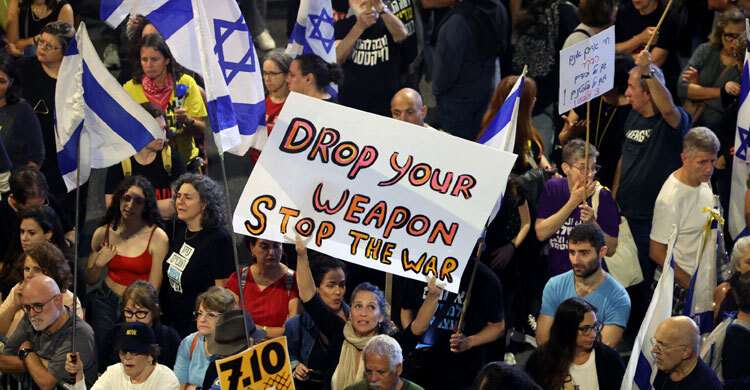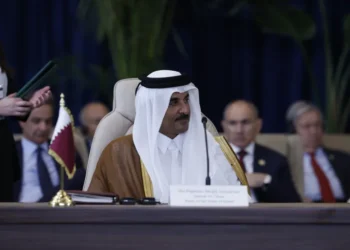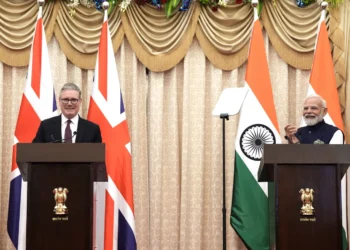The Qatari government has informed the US and Israel it will stop mediation efforts to halt the conflict in Gaza because it no longer thinks the parties are negotiating in good faith.
According to a diplomatic source briefed on the situation, the Gulf state has concluded that talks have become a political football, and its efforts to facilitate them were generating criticism towards it. “As long as there is a refusal to negotiate a deal in good faith, they cannot continue to mediate,” the source said.
Qatar’s move is the latest major blow to a faltering effort to end fighting in Gaza which has not produced significant results since a temporary ceasefire and hostage release deal nearly a year ago.
However, with a new US administration taking power in just over two months, the Qataris have also made clear to US contacts that they would be willing to resume mediation if both sides showed a “sincere willingness” to reach a deal.
The latest round of talks in October, which included the CIA Director, Bill Burns, failed to produce a deal, with Hamas rejecting a short-term ceasefire proposal. The group has always called for a complete end to the war and the full withdrawal of Israeli troops from Gaza.
According to Dr Hellyer, US attempts at negotiation have been fatally flawed.
“By setting red lines and allowing Netanyahu to cross them without consequence, the Biden administration effectively encouraged further impunity. I don’t think any of this will change in the next 10 weeks.”
Dr Hellyer
Any overtures have been repeatedly rejected by Netanyahu and his right-wing coalition, who will now also feel emboldened by the prospect of an incoming Donald Trump presidency.
While exactly what approach Trump will take to the region remains uncertain, he is thought to be more likely to allow Israel to act on its terms.
He has previously said Israel should “finish what they started” in Gaza. During his last term in the White House, he took a number of steps deemed highly favourable to Israel, including moving the US embassy to Jerusalem.
It has also been reported, however, that Trump has told Netanyahu that he wants to see an end to the fighting by the time he takes office.
Either way, it seems likely that the current US administration will have less influence over the government in Jerusalem.
Qatar’s Withdrawal From Negotiations Labelled ‘Tactical’ Move
Tamer Qarmout, an Associate Professor of public policy at the Doha Institute for Graduate Studies, noted that Qatar’s decision to withdraw as a key mediator in ceasefire talks is a “tactical” move to “put pressure” on Israel and Hamas while also signalling Qatar’s “concern” over the new US administration.
He stated that the Qataris have been in a “very delicate position,” adding Republicans in the US have become more vocally critical of Qatar’s involvement.
“I think Qatar is increasingly concerned about this particular angle – being blackmailed or intimidated, both by certain elements within the US administration and by Israel as well.
“But at the same time, it’s not the end of the game for [Qatar]. They’re freezing [the negotiations], but that doesn’t mean that if the parties seek out Qatar to be involved again, it won’t be there to do this mission.”
Tamer Qarmout
Additionally, the Associate Professor opined that despite Qatar’s decision to withdraw from Israel-Hamas negotiations, Egypt is expected to “remain active” albeit with a “less visible” role.
“At the political level, they may follow Qatar at some point. But the reality on the ground is that they will still have some open channels with Hamas militants in the Gaza Strip, because they know them and because they share geography with them.”
Tamer Qarmout
Qarmout added that due to its geographic proximity, Egypt has a “unique” connection to Gaza. “It has more direct ties with the people on the ground since Egypt shares a border with Gaza,” he said.
READ ALSO: Letshego Ghana’s GHS100m Bond Issuance Garners Strong Investor Demand, Priced at 22.50%





















